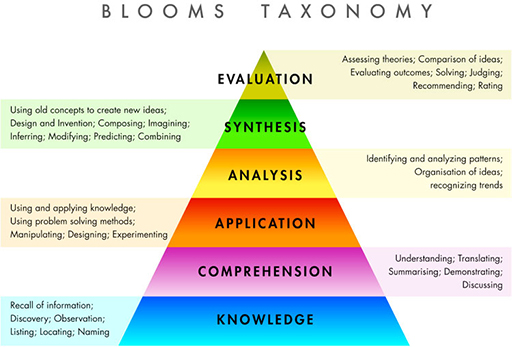4 The importance of critical thinking and analysis in academic studies
The aim of critical thinking is to try to maintain an objective position. When you think critically, you weigh up all sides of an argument and evaluate its strengths and weaknesses. So, critical thinking entails: actively seeking all sides of an argument, testing the soundness of the claims made, as well as testing the soundness of the evidence used to support the claims.
Box 1 What ‘being critical’ means in the context of critical thinking
Critical thinking is not:
- restating a claim that has been made
- describing an event
- challenging peoples’ worth as you engage with their work
- criticising someone or what they do (which is made from a personal, judgemental position).
Critical thinking and analysis are vital aspects of your academic life – when reading, when writing and working with other students.
While critical analysis requires you to examine ideas, evaluate them against what you already know and make decisions about their merit, critical reflection requires you to synthesise different perspectives (whether from other people or literature) to help explain, justify or challenge what you have encountered in your own or other people’s practice. It may be that theory or literature gives us an alternative perspective that we should consider; it may provide evidence to support our views or practices, or it may explicitly challenge them.
You will encounter a number of activities and assignments in your postgraduate studies that frequently demand interpretation and synthesis skills. We introduced such an activity in Session 1 (Activity 3). Part of this requires use of ‘higher-order thinking skills’, which are the skills used to analyse and manipulate information (rather than just memorise it). In the 1950s, Benjamin Bloom identified a set of important study and thinking skills for university students, which he called the ‘thinking triangle’ (Bloom, 1956) (Figure 1). Bloom’s taxonomy can provide a useful way of conceptualising higher-order thinking and learning. The six intellectual domains, their descriptions and associated keywords are outlined in Table 1.

| Domain | Description | Keywords |
| Knowledge | Exhibit memory of previously learned material by recalling information, fundamental facts and terms, as well as discovery, through observing and locating. | Who? What? Find Define Recall |
| Comprehension | Demonstrate understanding of facts and ideas by organising, comparing, translating, interpreting, giving descriptors and stating main ideas. | Compare Contrast Explain Discuss |
| Application | Solve problems in new situations by applying acquired knowledge, facts, techniques and rules in a different or new way. | Plan Build Experiment Design Solve Interview |
| Analysis | Examine and break information into parts by identifying motives or causes. Make inferences and find evidence to support generalisations. | Dissect Examine Infer Compare Contrast |
| Synthesis | Compile information together in a different way by combining elements in a new pattern or proposing alternative solutions. | Compose Construct Create Design Develop Theorise Elaborate Formulate |
| Evaluation | This is also denoted as ‘critical evaluation’, often used to emphasise the depth of evaluation required. You will be required to present and defend opinions by making judgements about information, the validity of ideas or quality of work based on a set of criteria. | Compare Justify Prove Disprove Deduct |
